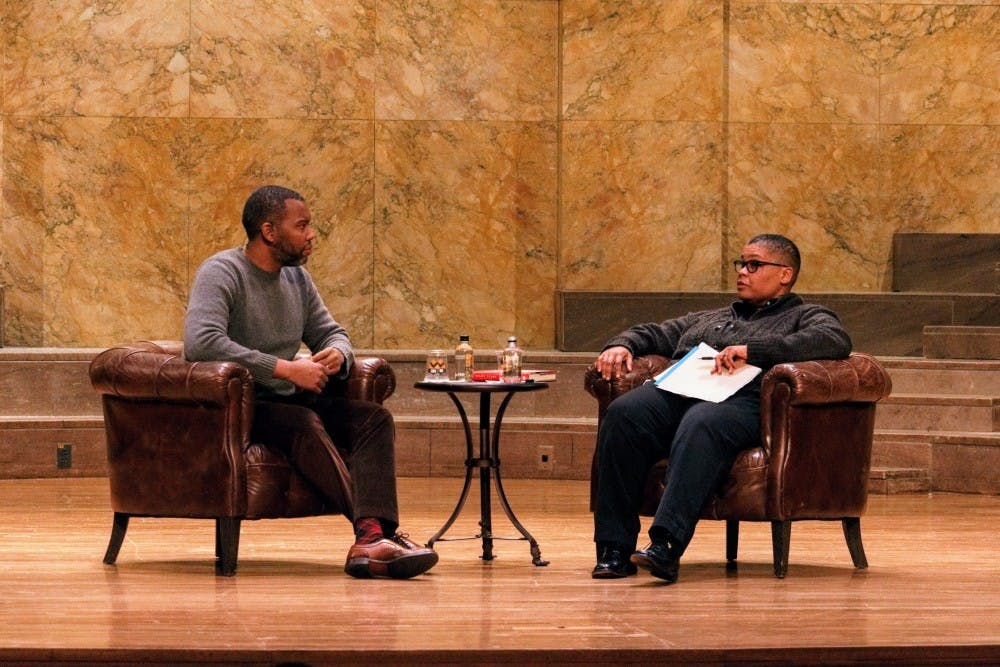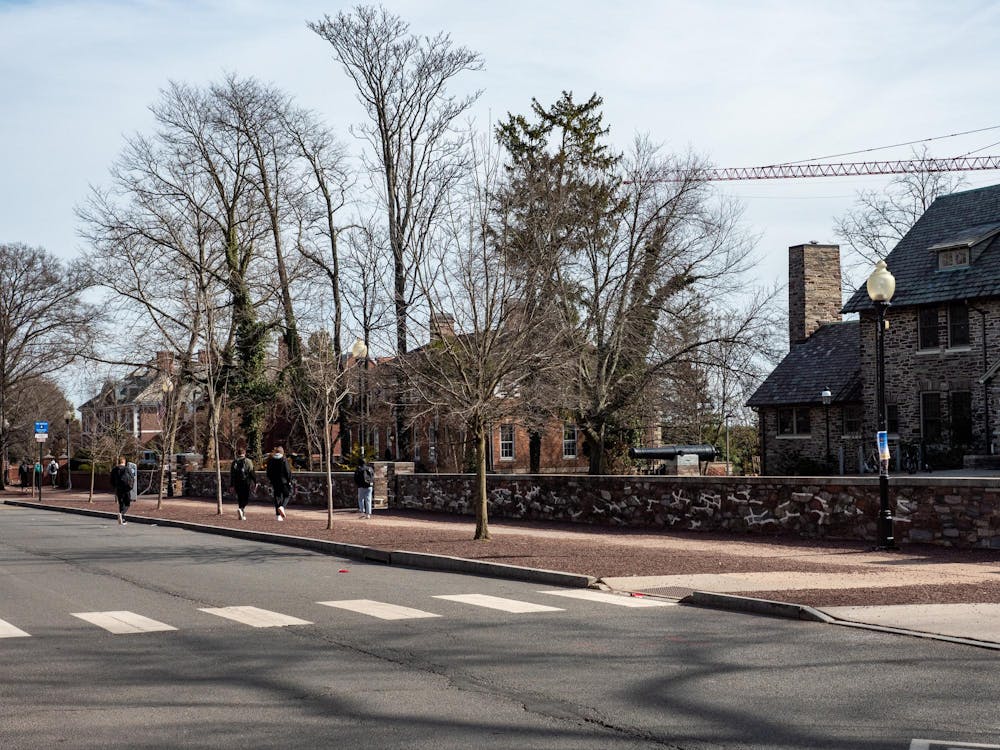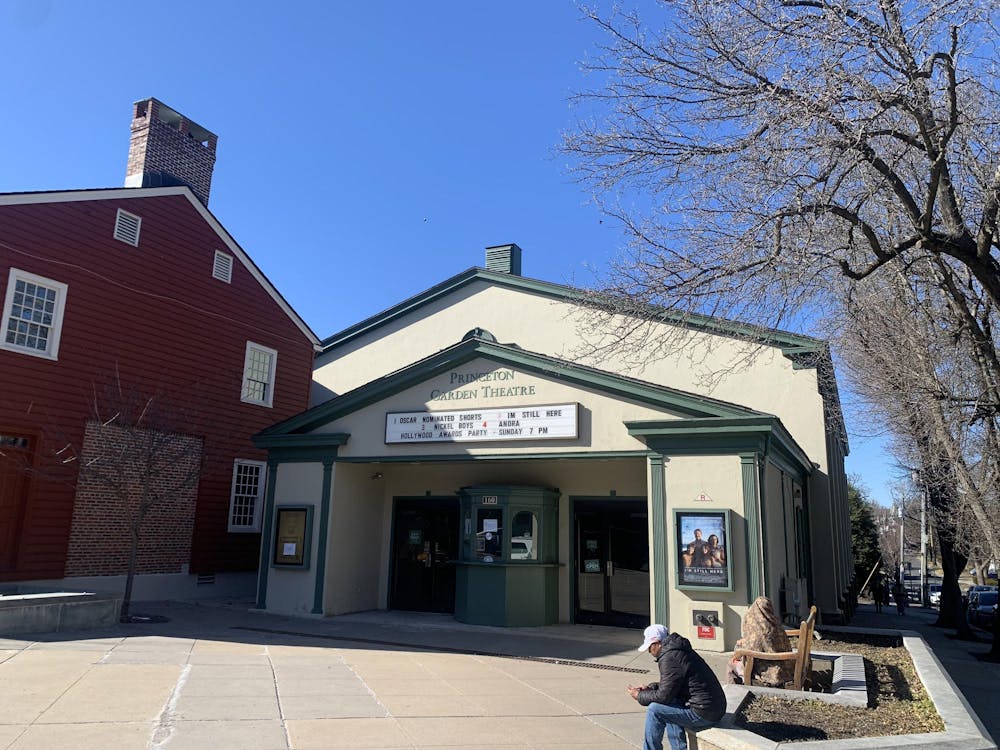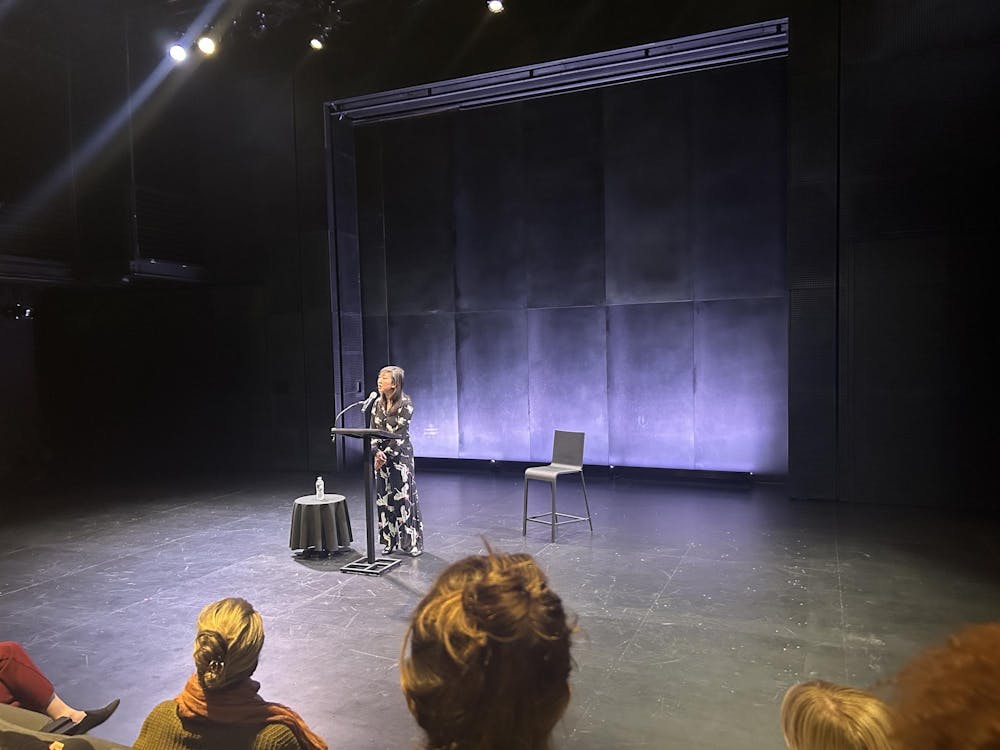It’s shameful to go to a university that is so enamored with Woodrow Wilson, according to National Book Award-winning writer Ta-Nehisi Coates.
In a discussion with assistant professor of African American Studies Keeanga-Yamahtta Taylor, Coates — a former national correspondent for The Atlantic and award-winning author of “Between the World and Me” — spoke about Black Lives Matter, his criticisms of President Barack Obama, and the University’s legacy of racism. He was introduced by Tennille Haynes, the director of the Carl A. Fields Center for Equality and Cultural Understanding.
During the first portion of the conversation, Coates and Taylor discussed the extent to which race relations in the United States have progressed since Reconstruction, especially during the Trump presidency.
While Coates stated that “we obviously couldn’t have had a black president a hundred years ago,” he said he still holds reservations about whether that progress came in good faith.
“Progress comes if it’s to a critical mass of white peoples’ advantage,” Coates said, referring to how the civil rights movement of the 1960s blossomed, in part, to draw contrast to the oppression of Soviet Union.
“If power cannot find its own interest in something, it generally won’t do it,” Coates said.
Taylor later asked why Coates refrained from discussing Black Lives Matter in his Atlantic features, noting the topic’s popularity among many of the writer’s contemporaries.
“I felt like there were a number of other African-American writers at that point doing a great job,” Coates said. “I was just trying to back off.”
He explained he tends to avoid writing about activism, arguing that “it’s good for [him] to maintain a degree of distance from movements”—even those that promote causes for which he cares deeply, such as reparations.
Later in the conversation, Coates admitted one of his greatest challenges as a writer is his relationship with the Obama presidency.
Though he was critical of some of President Obama’s immigration and race-related policies, he said the very fact that there was a black president led to “real progress” by inspiring many young African Americans. Coates said that black communities expressed extremely high approval ratings throughout Obama’s presidency, indicating intense support.
“How can I be a writer who pulls from that love and then dismisses it?” he asked. Indeed, Coates emphasized the symbolic importance of Obama’s presidency and how it expanded the imagination of what is politically possible.

During the question-and-answer period following the conversation, a member of the Princeton Reconstruction Project asked Coates how the University could reconcile its history of racism with its status as a leader in academic thought.
For one, Coates said, the University needs to remove Woodrow Wilson’s name from buildings on campus, calling it an “embarrassment.”
“He wasn’t just racist in the same way that most white people were from that era were racist,” he said, citing the former president’s role in segregating the federal government.
“He was even racist for his time. He was even racist for before his time,” Coates said.
Chloe Searchinger ‘22, an audience member, left the event “reminded of how much more complex issues are than how we debate them on a daily basis.”
“I just thought he was such a smart and inspiring and thoughtful speaker,” she added. “And it reminded me how important it is to really understand our history.”
The talk was held in Richardson Auditorium at 5:30 p.m. on Nov. 28. It was hosted by the Fields Center and Princeton Public Lectures.









